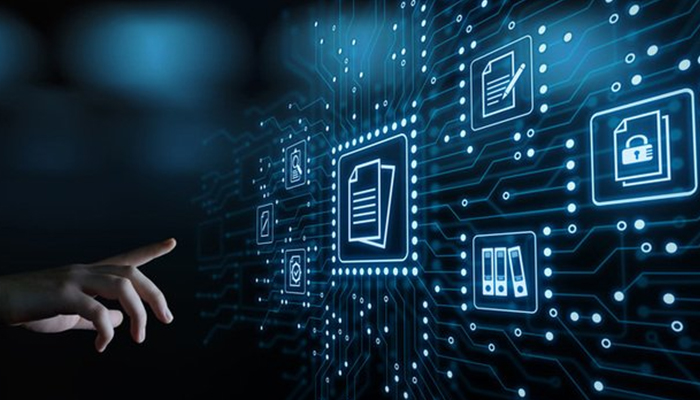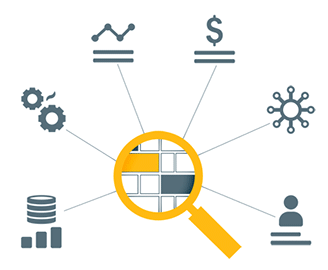
1000+
customers

50+ countries
across the world

Outsourcing leader
since 2008

Technology-driven
services

Stringent
quality processes
Misconceptions about eDiscovery that Business Owners Should Know!
Last updated: 16 Feb, 2024 By Ritu Kaushal | 6 Minutes Read

Digital technology is having a widespread impact on all industries, and the legal industry is also not exempted from the same. As legal practitioners find their way to deal with this new technological advancement and adapt to it, there are many misconceptions that they have about electronic discovery.
As the famous proverb goes by, “A little knowledge is a dangerous thing.” these misconceptions can affect the decision-making and efficiency of lawyers in terms of discovery.
What is eDiscovery?
The procedure of gathering and producing relevant evidence for a case in an investigation or litigation comes under the legal process of discovery in the U.S. In today’s digital era, most of such information is present electronically as it is moved from folders and cabinets to servers, mobile devices, and desktops. In simple terms, e-discovery refers to recognizing and presenting the Electronically Stored Information (ESI).
A Look Into the eDiscovery Process
The eDiscovery process can be divided into three key phases. Let’s see what every legal team should know about these phases.
Phase 1: Identification, Preservation, Collection
This phase includes the recognition, collection, and maintenance of relevant data, which is collected when litigation is anticipated or a complaint is filed. In this process, it is crucial to adhere to the Federal Rules of Civil Procedure (FRCP), and it is of high importance to preserve and handle ESI with caution to prevent data spoliation.
Phase 2: Data Analysis, Reduction, Analytics
This phase is the most important component of the eDiscovery process as it helps to deal with and sort a large amount of data. In this process, the legal team eliminates about 50% or more of irrelevant data through advanced analytical technologies and efficient data analysis.
Phase 3: Processing, Review, Production
This phase includes reviewing the relevant data produced for a case. This process proves to be cost-intensive as instead of smaller subsets of data, legal teams tend to send everything for reviewing and processing. Hence, this is probably the most expensive phase of the eDiscovery process.
Misconceptions about eDiscovery and their Truth
1. eDiscovery is always Cost-Intensive
Truth – A study revealed that during litigation, it takes an average of 51 minutes for a lawyer to find a key document, which drops to 16 minutes for e-discovery attorneys. Hence, we see that it saves about 69% of the lawyers’ time.
2. Adobe and Outlook are Enough for eDiscovery
Truth – The problems of Redactions and Bates number removal in Adobe and limited search capabilities and Metadata issues in Outlook, unlike proper ediscovery legal software, create more complications and complexities in the litigation management structure.
3. Metadata is Not so Important
Truth – Metadata holds immense importance in eDiscovery since it provides you with the following file information, which is very crucial for a fast litigation outcome:
- The day it got created
- Name of the file
- The day it got last modified
- File’s location within the system
4. Search Terms are Equally Efficient as eDiscovery
Truth – If you want to speed up your litigation process, search terms aren’t as effective as tags, folders, and other tools, which are also less expensive. It is imperative that the software is for legal research, which must have Boolean functions.
5. eDiscovery is a Complicated Process
Truth – eDiscovery involves no complications at all, as uploading documents has become effortless with a simple ‘drag and drop.’ Also, automate images, documents, and metadata for search through OCR and indexing.
6. eDiscovery requires Technical Expertise
Truth – In legal e-discovery, finding relevant case information doesn’t require technical expertise; it only requires identifying the right people and events; no technical expertise is necessary. However, for analyzing and preparing reports further than the basic queries, having an expert on the team is always a viable option.
7. Highly important matters require eDiscovery
Truth – Even a small case can generate a 1GB of data comprising thousands of documents to scan, which can be anywhere between 4000-5000, like:
- DOC
- XLS
- TXT
- EML
- PPT
- MSG
Also, you never know when a small case turns into a big one owing to the preparation by opposing counsel, making your research and prepare even harder and that too in a short span of time.
8. Lawyers Need Not Understand eDiscovery
Truth – eDiscovery involves going through a lot of documents, and it is imperative for a lawyer to have a basic understanding of the ESI stored and used by the client and opponent to establish relevance. Also, where 98% of information is stored electronically, an understanding of eDiscovery becomes essential.
9. eDiscovery Excludes Personal Data
Truth – It is not exactly like that since even a remote worker can be the right source for you to gain access to important data stored in electronic documents and files. There are various software that takes personal data into account from mobile devices, computers, and more.
10. eDiscovery helps Beat the Motion to Compel
Truth – Most of the lawyers are of the view that they will never face this issue. However, according to the Federal Rules of Evidence (in relation to electronic discovery laws), parties should take reasonable steps to preserve electronic information; otherwise, they may face legal action.
11. Every Case requires eDiscovery
Truth – This is not true at all since it all varies from case to case. There are cases where eDiscovery provides the main evidence, and then there are times when other evidence is of higher importance than the electronic evidence.
Conclusion
This concludes the fact that eDiscovery has proved to be of great help when it comes to supporting attorneys during their case research. Despite this, a lot of misconceptions have been prevailing in the market, making the adoption of eDiscovery a little harder for some attorneys.
However, the above explanation of the truths clearly establishes that eDiscovery actually simplifies attorneys’ work and does not hinder it. This is the only reason a large number of lawyers have started to use litigation support services, and this number is increasing with the passing of each and every day.
Are you finding it hard to conduct e-discovery for your legal proceedings owing to a lack of technical expertise or time? If yes, Cogneesol is there to help you. We have been providing cost-effective, proficient, and timely litigation and other legal support services to lawyers and law firms worldwide since 2008.
Get in touch for a 14-day free trial!
Latest Blogs

This site is protected by reCAPTCHA. Google's Privacy Policy
and Terms of Service apply.









